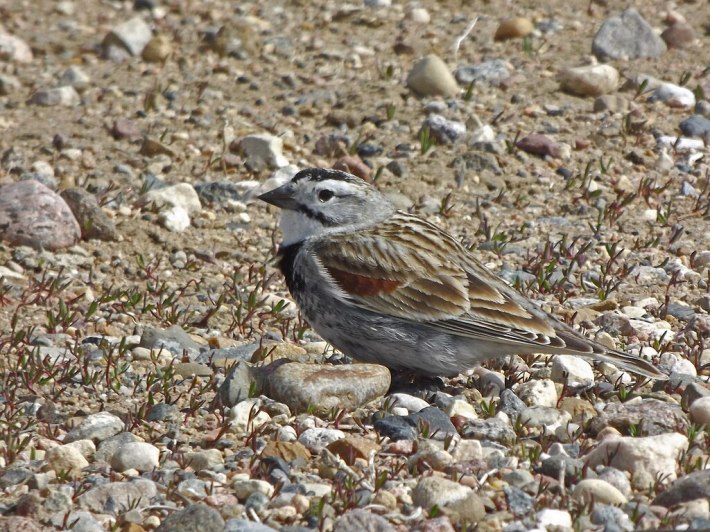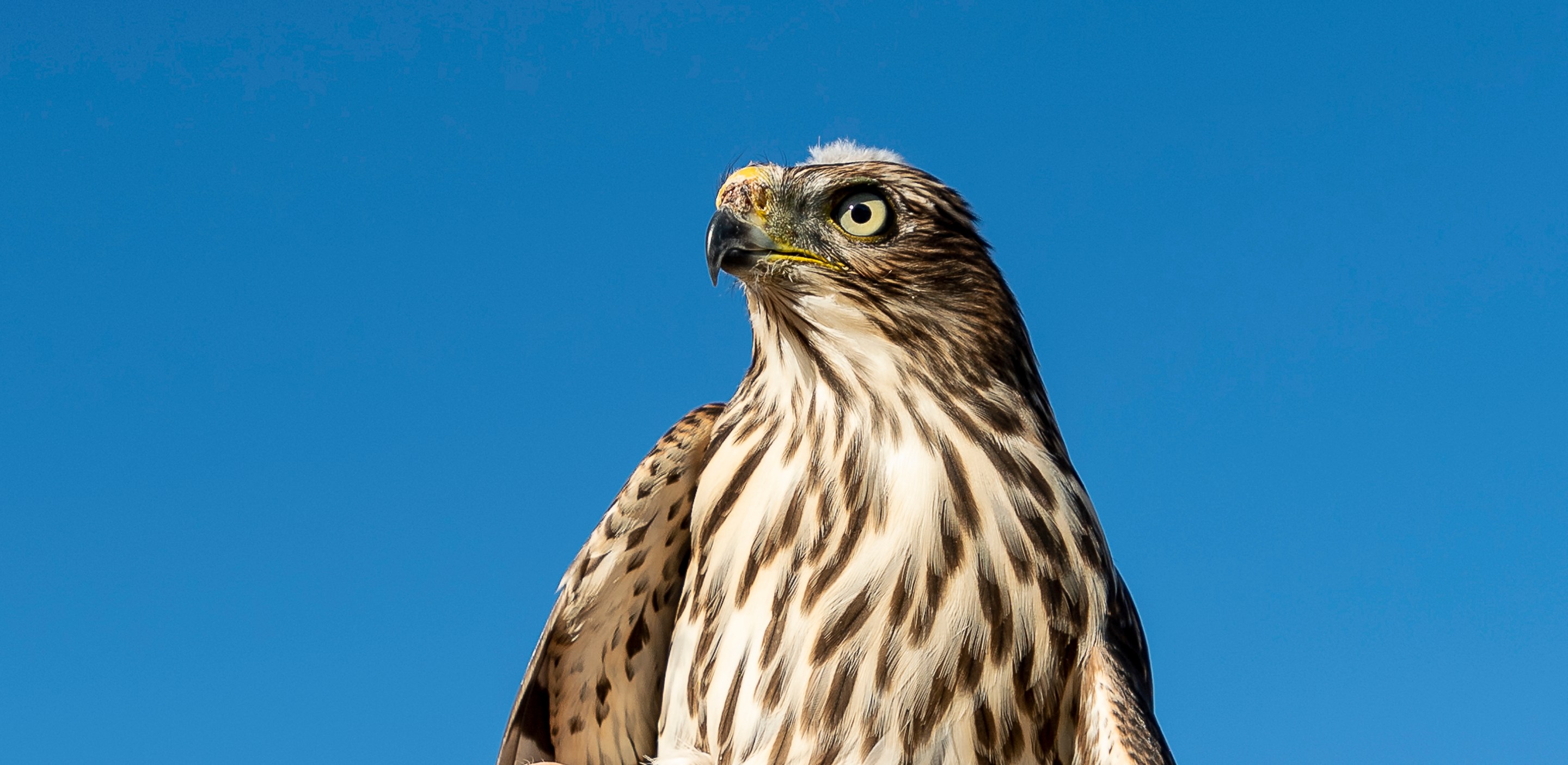After two years of deliberation, the American Ornithological Society announced on Nov. 1 that birds in North America will no longer be named after people. The group plans to rename all species that honor people, as well as any species whose names that are deemed offensive and exclusionary, with new names that actually describe the birds' appearance, habitat, or behavior. The decision follows years of activism and heated debate within the ornithological community and is a significant win in a larger renaming movement to make science more inclusive of all communities. Jordan Rutter, a co-founder of Bird Names For Birds, called the decision "a truly historic moment." Alice Boyle, an associate professor at Kansas State University and former councilmember with the group who voted for the decision, said, "It really feels like a victory now that it's finally happened."
Around 70 to 80 bird species found in the United States and Canada are on the list, many of which are named after white supremacists, eugenicists, colonizers, and people who murdered Indigenous people or robbed their graves. [CORRECTION: An earlier version of this story incorrectly stated that some names would be prioritized for being changed.] The small black-and-white seabird called the Audubon's shearwater, named after John James Audubon, who bought and sold enslaved people, will be renamed, as will the striking bumblebee-colored Scott's Oriole, named after Winfield Scott, a general who forcibly removed the Cherokee from their homelands. "There is one bird’s name that hits me in the gut, takes my breath away, because it’s personal: Scott’s Oriole," wrote Stephen Carr Hampton, a birder and citizen of the Cherokee Nation, in a blog post in 2021.
The decision only affects birds' English common names, which are the names most people use to identify and talk about birds, as opposed to their Latin scientific names. So while the Cooper's hawk will get a new common name, its scientific name, Accipiter cooperii, will remain the same, as scientific names are controlled by the International Commission on Zoological Nomenclature. The American Ornithological Society, which was formed by a merger of the American Ornithologists' Union and the Cooper Ornithological Society, has kept the list of North American birds' official English common names since 1886, updating them mostly for scientific reasons.
Mostly. In 2000, the society famously changed the common name of Clangula hyemalis to the "long-tailed duck," removing the duck's former name, which was a slur against Native American people. But in the society's official supplement noting changes to the list, that renaming is explained without mention of the slur: "one English name is changed to conform to worldwide use." And in 2019, the society rejected a graduate student's proposal to rename the McCown's longspur, a bird named after a Confederate general, citing that the society did not have a policy by which to judge name changes on the basis of offensiveness.
"People have pointed out problematic names for a long time," said Sushma Reddy, the Breckenridge Chair of Ornithology at the University of Minnesota’s Bell Museum, as well as the secretary of the American Ornithological Society's council. "But I think the real drive to make this movement came in 2020 after the murder of George Floyd." On the same day Floyd was killed by the police, a white woman in Central Park called the police on Christian Cooper, a black birder, and falsely claimed he was threatening her. Soon after, Bird Names For Birds sent a petition to the society asking that it create a plan to change these harmful common names, as well as noting that the society's refusal to rename the McCown's longspur was contradictory to its stated commitment to make the birding world equitable and inclusive. But that summer's social reckoning spurred the society to reconsider, and in August, the society announced the bird would henceforth be known as the thick-billed longspur.

But the movement was always larger than any single bird. Many birds named after people are named after the people who "discovered" them, an inherently colonial practice that means the majority of birds are named after white men. "That kind of bias can be kind of implicitly exclusionary," Reddy said. As Rutter and Gabriel Foley wrote in an op-ed for the Washington Post, eponymous names "are a memorial both to the colonial system that wove the fabric of systemic racism through every aspect of our lives—including the birds we see every day—and to the individuals who intentionally and directly perpetuated that system." The society's new decision, Rutter notes, adopted all of the points made by Bird Names for Birds.
In 2021, the society formed an ad-hoc committee to decide which bird names should be changed and how. Their report, detailing their careful deliberation and many alternative views, is available to read here. A few members of the committee changed their minds over the process, according to Daniel Cadena, a co-chair of the committee. "This was a journey for most of us," Cadena wrote in an email. Although some members initially believed the society should litigate bird names one by one, "we reasoned that we cannot argue endlessly over which person should or shouldn’t have their name on a bird," Cadena said. After all, many birds are named after people who contributed to science without becoming a eugenicist or enslaver, raising the larger question of whether birds should be named after specific humans at all. Moving away from this practice "will allow us to focus future discussions on the many interesting and beautiful things about birds that can be captured by their names," he said.
The committee plans to seek input from the public as they select new names and establish a new committee to choose future common names. The process is similar to the Better Common Names Project of the Entomological Association of America, which recently renamed the the spongy moth, whose prior common name was a slur against Romani people. "Imagine an initiative to rename a beautiful bird in which professional ornithologists, amateur bird enthusiasts, educators, and kids who interact with that species share their thoughts, perspectives, and experience to help choose a name," Cadena said. "I think this can be powerful."
Scientists expressed excitement that these future common names might actually help people identify the birds they see as opposed to recalling the name of whichever naturalist's name it carries. "The Swainson's thrush has always bothered me, no offense to Swainson," Reddy said, noting that the thrush has a beautiful red tail. "It's nice to think there might be a bird name that reflects on these cool features it has rather than trying to remember what a Swainson's thrush is supposed to look like."
The society's decision will have effects beyond changing the ways birds come up in conversation or in writing. "It affects science, it affects how we refer to our study organisms, even things as crazy as banding codes in the bird-banding database," Boyle said. While the society also oversees the English name of birds in Central and South America, it plans to engage with ornithologists and organizations from those regions to "decide who would be the most appropriate stewards of these names," Cadena said.
There is still some resistance to renaming efforts in the birding community. Earlier this year, the National Audubon Society's board of directors rejected a proposal to change the nonprofit's name given John James Audubon's racist legacy, leading to a slew of resignations. But many local Audubon offshoots decided to rename themselves anyway.
Although name changing marks a concrete step in addressing some of the historical violence of colonialism, many modern barriers rooted in colonialism still affect who gets to participate in science. Decolonization in the science does not end with animal names. "The pattern of name changing is not an inconsequential thing," Yara Haridy, a birder and paleontologist at the University of Chicago, who tweeted about her frustration at seeing scientists' robust support of decolonizing bird names amid a silence regarding Palestine, wrote in an email. "In context of all the major issues within science and society it just feels like we are putting in a lot of efforts towards the public-facing small changes with minimal attention to the issues that would actually change life for those still dealing with colonial legacy," she said. Haridy noted the barriers facing inclusion of the global south, and harassment of students from marginalized backgrounds in the field. "There is still so much work to be done," she said.
Reddy acknowledges it can be exhausting to have to remember new names, and it may take weeks, months, or years, to use them reflexively. But this will pass, and the next generation will learn the new names without needing to remember the names of a 18th-century naturalist. "It becomes natural when you make the decision that it's the right thing to do," she said. And, as Boyle noted, this change also seeks to redefine our relationship to birds—for the better. "It was partly due to objections around some people, but also more fundamentally to recognize that we don't own birds," she said.






